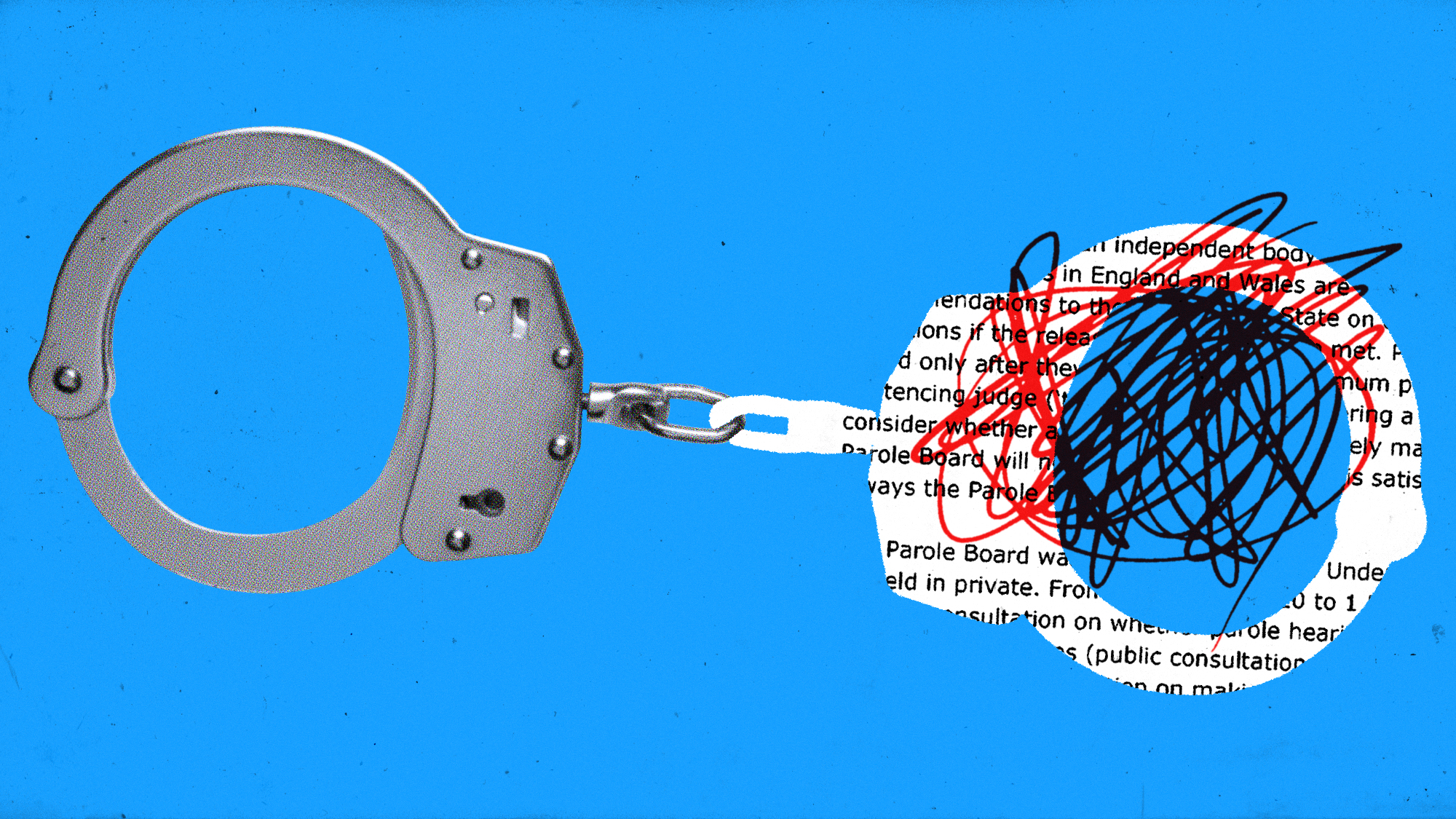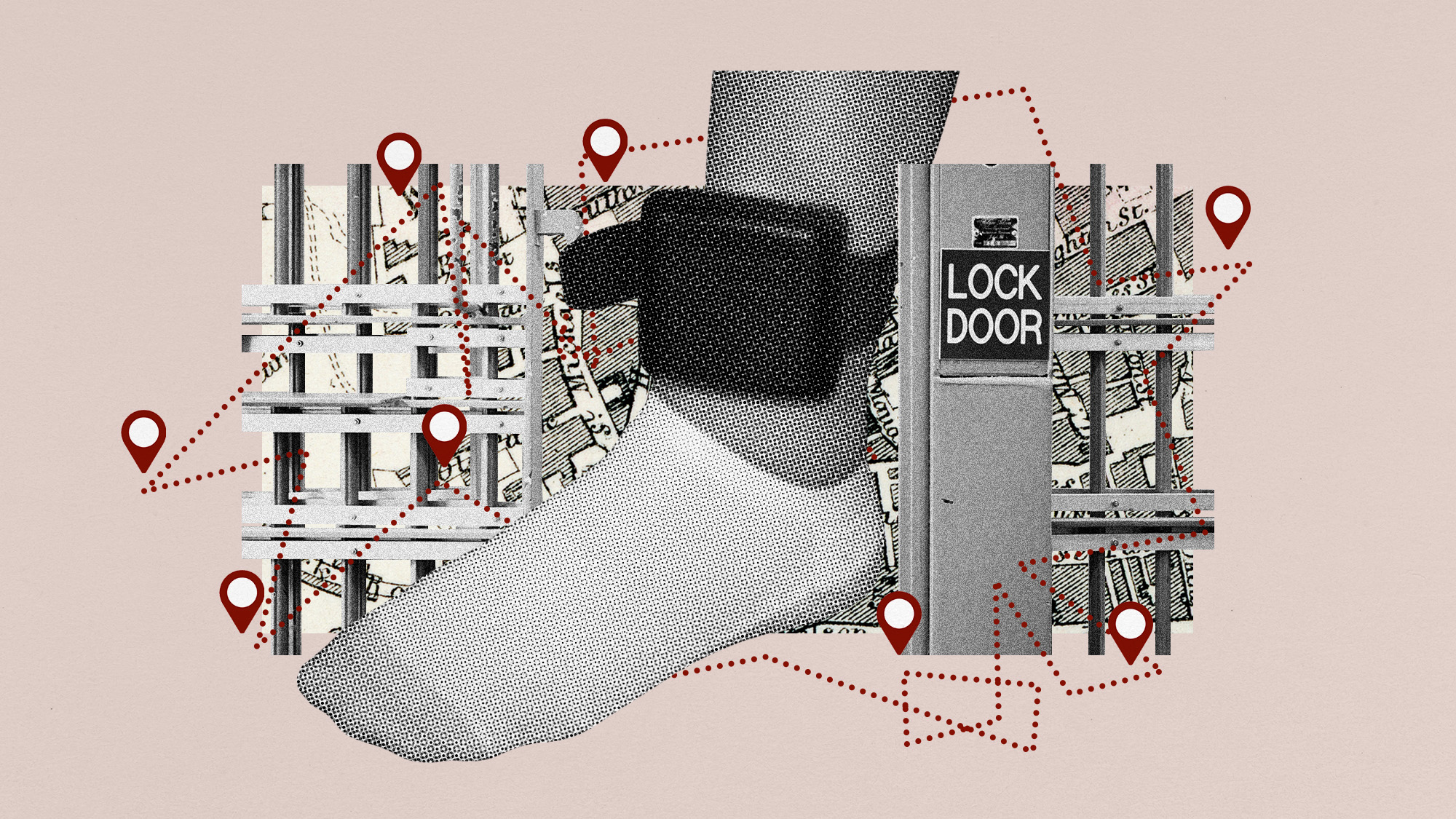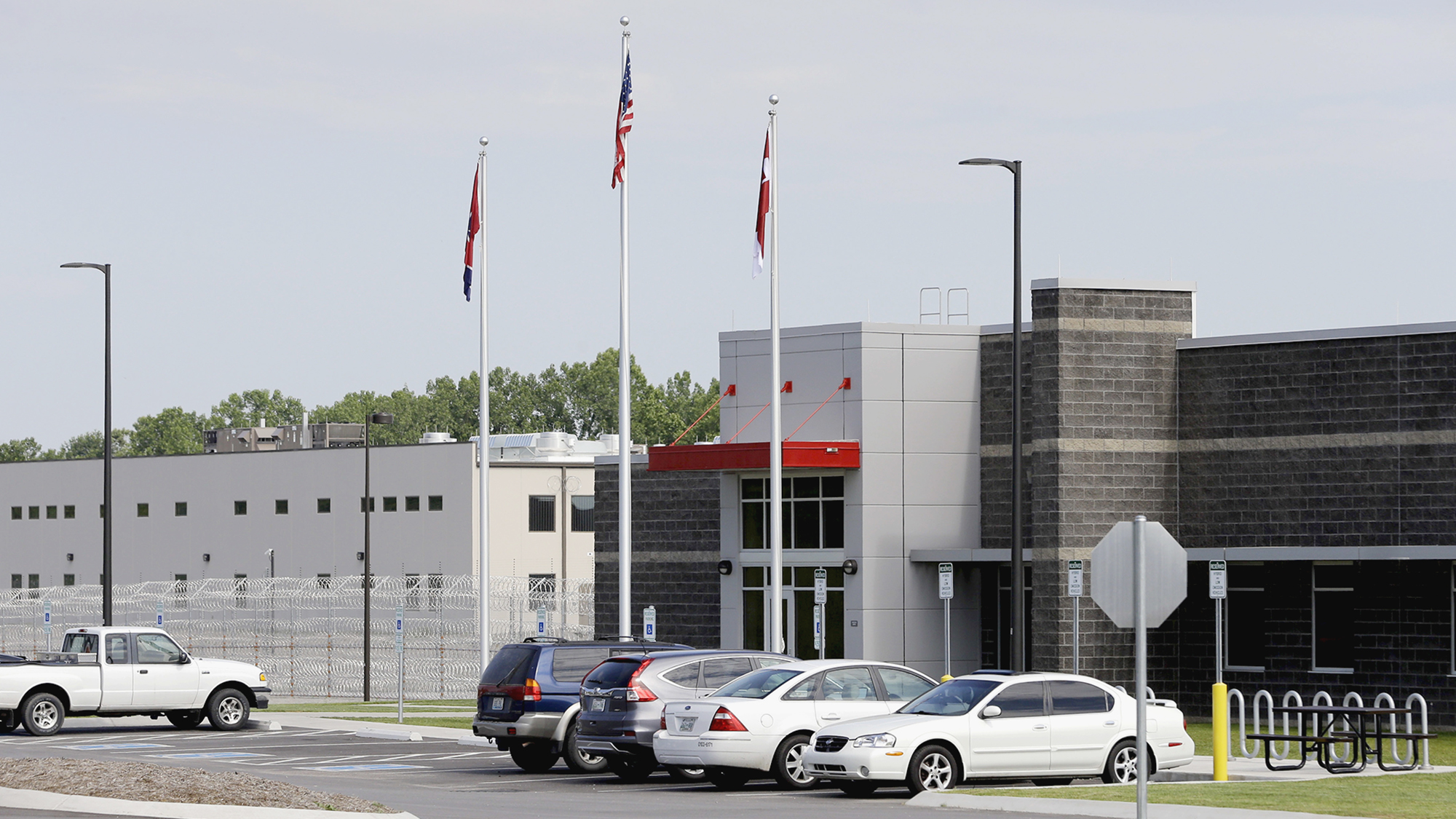Why are so many prisoners being released by mistake?
Overcrowding and faulty computer systems have been blamed for 128% rise in unauthorised releases

A free daily email with the biggest news stories of the day – and the best features from TheWeek.com
You are now subscribed
Your newsletter sign-up was successful
The government has launched an independent investigation after the accidental release of a “high profile” prisoner “left jaws on the floor”, said Chris Mason, the BBC’s political editor.
Ethiopian national Hadush Kebatu, who was jailed for 12 months in September for sexually assaulting a 14-year-old girl and a woman, was due to be deported at the end of his sentence but was mistakenly released on Friday, before being recaptured in London on Sunday.
How many prisoners are wrongly released?
In the 12 months to March this year, 262 prisoners were released in error, a 128% increase from 115 the previous year, according to government data. The total prison population in England and Wales is approximately 86,000.
The Week
Escape your echo chamber. Get the facts behind the news, plus analysis from multiple perspectives.

Sign up for The Week's Free Newsletters
From our morning news briefing to a weekly Good News Newsletter, get the best of The Week delivered directly to your inbox.
From our morning news briefing to a weekly Good News Newsletter, get the best of The Week delivered directly to your inbox.
The vast majority of the “blunders” – 233 – occurred in prisons, while the remaining 29 happened in courts, said The Telegraph.
How do prisoners get released in error?
There are a variety of reasons. During the government’s emergency prison release scheme in September 2024 to tackle overcrowding, 37 inmates were freed in error because their offences were wrongly logged under repealed legislation.
The prison where Kebatu was mistakenly released was “conned into freeing a fraudster two years ago”, said The Times. In June 2023, HMP Chelmsford received an email purporting to be from the Royal Courts of Justice instructing the prison to release Junead Ahmed, who was awaiting trial on suspicion of fraud. After prison staff released Ahmed they received further emails from the same sender with apparent orders for the release of other inmates. They then “realised the emails were fake”.
Elsewhere, a computer system “designed to automate the calculation of release dates has ‘failed to function as planned’”, forcing prison staff to “work out complex release calculations by hand using calculators”, said The i Paper.
A free daily email with the biggest news stories of the day – and the best features from TheWeek.com
It shouldn’t be “difficult or complicated to correctly calculate release dates”, or to “issue accurate instructions for transferring prisoners and ensure they are followed”, said former prisoner David Shipley in The Spectator. But accidental releases are “all too common” – “time and again, our prisons demonstrate they can’t do the basics”.
Why are numbers rising?
It’s “quite possible” that overcrowding is “one of the reasons for the increase in these mistakes”, Ian Acheson, a former prison governor, told The Telegraph. There are “literally thousands of movements a year of people going to and from courts” and “people going to and from” different jails, said another former governor, John Podmore.
In addition to general overcrowding in the penal system, there’s been a “doubling” in the number of prisoners held on remand awaiting trial. Numbers have reached a 50-year high of more than 17,500 – around a fifth of the entire prison population. These inmates have to be “regularly transferred to and from court for hearings”, which increases the pressure on the “often inexperienced officers” who are “receiving and discharging prisoners”.
What can be done?
Speaking in the House of Commons, Deputy Prime Minister David Lammy said that “any release in error is one too many”. He has “taken immediate action to introduce the strongest release checks ever”.
From now on a prison duty governor must be physically present when any foreign criminal is being released early to be deported. There will be a “clear checklist with governors required to confirm every step has been followed before any release takes place”.
Chas Newkey-Burden has been part of The Week Digital team for more than a decade and a journalist for 25 years, starting out on the irreverent football weekly 90 Minutes, before moving to lifestyle magazines Loaded and Attitude. He was a columnist for The Big Issue and landed a world exclusive with David Beckham that became the weekly magazine’s bestselling issue. He now writes regularly for The Guardian, The Telegraph, The Independent, Metro, FourFourTwo and the i new site. He is also the author of a number of non-fiction books.
-
 How the FCC’s ‘equal time’ rule works
How the FCC’s ‘equal time’ rule worksIn the Spotlight The law is at the heart of the Colbert-CBS conflict
-
 What is the endgame in the DHS shutdown?
What is the endgame in the DHS shutdown?Today’s Big Question Democrats want to rein in ICE’s immigration crackdown
-
 ‘Poor time management isn’t just an inconvenience’
‘Poor time management isn’t just an inconvenience’Instant Opinion Opinion, comment and editorials of the day
-
 Judge rejects top state charges in Mangione case
Judge rejects top state charges in Mangione caseSpeed Read If convicted, Mangione faces up to life in state prison
-
 Insects and sewer water: the alleged conditions at 'Alligator Alcatraz'
Insects and sewer water: the alleged conditions at 'Alligator Alcatraz'The Explainer Hundreds of immigrants with no criminal charges in the United States are being held at the Florida facility
-
 Alcatraz: America's most infamous prison
Alcatraz: America's most infamous prisonThe Explainer Donald Trump wants to re-open notorious 'escape-proof' jail for 'most ruthless and violent prisoners' in the US
-
 Italy's prisons crisis
Italy's prisons crisisUnder the Radar Severe overcrowding, dire conditions and appalling violence have brought the Italian carceral system to boiling point
-
 DOJ demands changes at 'abhorrent' Atlanta jail
DOJ demands changes at 'abhorrent' Atlanta jailSpeed Read Georgia's Fulton County Jail subjects inmates to 'unconstitutional' conditions, the 16-month investigation found
-
 'Virtual prisons': how tech could let offenders serve time at home
'Virtual prisons': how tech could let offenders serve time at homeUnder The Radar New technology offers opportunities to address the jails crisis but does it 'miss the point'?
-
 The countries that could solve the UK prisons crisis
The countries that could solve the UK prisons crisisThe Explainer Britain's jails are at breaking point, and ministers are looking overseas for solutions
-
 DOJ investigates Tennessee's largest prison
DOJ investigates Tennessee's largest prisonSpeed Read Federal authorities are looking into reports of substantial violence and sexual abuse at Trousdale Turner Correctional Center